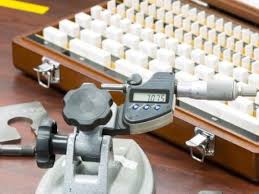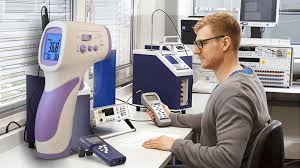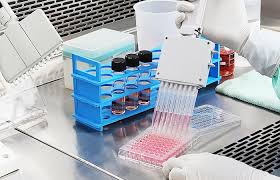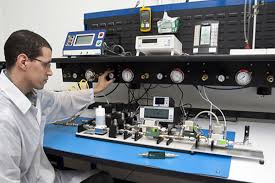What is calibration in measurement? This beginner's guide will provide a comprehensive overview of calibration, an essential process in the field of measurement. Calibration ensures the accuracy and reliability of measuring instruments, making it a critical aspect of various industries such as engineering, manufacturing, and scientific research. In this guide, we will explore the fundamental concepts of calibration, its importance, and the different methods used in the process. Whether you are new to the world of measurement or looking to deepen your understanding of calibration, this guide aims to provide you with the necessary knowledge to appreciate its significance in accurate and precise measurements.
Calibration in measurement is the process of comparing the accuracy of a measuring instrument against a known standard. This is done to ensure that the instrument provides accurate and reliable measurements. Calibration involves making adjustments to the instrument to minimize any deviations from the standard. It is an important step in various industries, including manufacturing, healthcare, and research, where precise measurements are crucial. Calibration helps to ensure the quality and accuracy of measurements, ultimately leading to better products and services. Regular calibration of measuring instruments is necessary to maintain their accuracy over time.
Understanding Calibration: The Key to Accurate Measurements
calibrer ecran service

Calibration is the process of comparing a known measurement or standard to the measurement of the instrument being tested, and making adjustments to ensure the accuracy and precision of the instrument. Put simply, calibration is all about fine-tuning measuring devices to ensure that they are providing correct measurements. Without proper calibration, measurements may not be reliable, leading to potential errors and inaccuracies in various applications, from scientific research to industrial processes.
Understanding Calibration: The Key to Accurate Measurements is a comprehensive guide that explores the importance of calibrating measurement tools and devices in various industries. The book delves into the fundamentals of calibration, including its role in ensuring the reliability and accuracy of measurements. It covers topics such as the different types of calibration, calibration standards, and best practices for implementing a robust calibration program. The book also addresses the potential impact of a lack of proper calibration on safety, quality control, and compliance with regulatory standards. With practical insights and real-world examples, Understanding Calibration serves as a valuable resource for professionals who rely on precise measurements in their day-to-day work.
The Importance of Calibration in Measurement

Calibration is essential in measurement as it ensures the accuracy and reliability of the measuring instruments. It involves comparing the measurements of a device with a standard reference to correct any deviations. This process helps to eliminate errors and uncertainties in measurements, which is crucial in various fields such as engineering, manufacturing, healthcare, and research. Without proper calibration, inaccurate measurements can lead to faulty products, compromised safety, and the inability to make informed decisions. Therefore, calibration plays a critical role in ensuring the quality and integrity of measurement results. Regular calibration also extends the lifespan of instruments and reduces the risk of costly errors.
Calibration: Ensuring Accuracy in Measurement

dd
Calibration is the process of comparing measurements taken by a specific instrument to those taken by a reference standard of known accuracy. This comparison allows for adjustments to be made to the instrument to ensure its measurements are accurate. Calibration is essential in fields such as engineering, manufacturing, and scientific research, where precise and accurate measurements are necessary. Regular calibration of instruments ensures that they continue to provide accurate results over time, allowing for consistent and reliable measurement data. Additionally, it helps to identify and correct any deviations or errors in the instrument's measurements, ultimately improving the quality and reliability of the data collected.
What Does Calibration Mean in Measurement?

Calibration in measurement refers to the process of comparing the readings of a device to a known standard in order to ensure accuracy and reliability. This is done by making adjustments to the device to bring its measurements in line with the standard. Calibration is important in various fields such as engineering, manufacturing, and scientific research to ensure that measurements are precise and consistent. It helps to maintain the quality and credibility of measurements and the data obtained from them.
The Role of Calibration in Precise Measurements
dimensional calibration services

Calibration is essential for ensuring the accuracy and reliability of measurements in various fields such as scientific research, manufacturing, and engineering. It involves comparing the measurement results of a device or instrument with known standards in order to detect and correct any inaccuracies or errors. Precise measurements are crucial in many industries, as they can impact the quality, safety, and performance of products and processes. Without accurate calibration, there is a risk of producing flawed or substandard goods, as well as potential safety hazards. In addition, calibration plays a key role in meeting regulatory standards and compliance requirements. Many industries are subject to strict regulations regarding the accuracy and traceability of measurements, and adherence to these standards is necessary to operate legally and ethically. Overall, the role of calibration in precise measurements is to ensure that instruments and devices are operating within acceptable tolerances and are producing reliable and consistent results. This is achieved through regular calibration procedures and documentation, which provide evidence of the accuracy and reliability of measurements.
Calibration Demystified: A Guide to Accurate Measurement
Calibration Demystified: A Guide to Accurate Measurement is a book that delves into the topic of calibration in various fields such as engineering, science, and manufacturing. It provides a comprehensive understanding of the principles and practices of calibration, offering a practical and accessible approach to the subject. The book covers topics such as measurement uncertainty, traceability, and calibration methodologies, making it a valuable resource for professionals and students alike. With real-world examples and practical tips, the book aims to demystify the complexities of calibration and help readers achieve accurate measurements in their work.
Why Calibration Is Essential for Reliable Measurements
Calibration is essential for reliable measurements because it ensures that the measuring instrument is accurately and consistently measuring the desired parameter. Without proper calibration, there is a risk of inaccurate readings, which can lead to faulty data and potentially costly mistakes. Calibration allows for adjustments to be made to the instrument to account for any deviations from the standard, ensuring that measurements are reliable and accurate. This is particularly important in fields such as scientific research, engineering, and manufacturing, where precise measurements are crucial. Overall, calibration is an essential step in maintaining the accuracy and reliability of measuring instruments.
Unveiling the Secrets of Calibration in Measurement
"Unveiling the Secrets of Calibration in Measurement" is a comprehensive guide that explores the intricacies of calibration and its significance in accurate measurement. The book delves into the theories and practices of calibration, providing in-depth insights into various calibration techniques and technologies. It offers practical tips for ensuring precise measurements and discusses the importance of calibration in different industries, from manufacturing and healthcare to scientific research. The book also touches upon the latest advancements in calibration technology and its impact on improving measurement accuracy. Overall, "Unveiling the Secrets of Calibration in Measurement" is a valuable resource for professionals and enthusiasts looking to enhance their understanding of calibration and its role in achieving reliable measurements.
Calibration: The Foundation of Accurate Measurements
Calibration is the process of comparing a measurement device to a known standard in order to ensure its accuracy and precision. It is a critical step in any measurement process, as it establishes the relationship between the output of a measurement device and the value being measured. Without proper calibration, measurements may be inaccurate, leading to errors in decision-making and potentially compromising product quality or safety. Calibration is essential in a wide range of industries, including manufacturing, healthcare, and environmental monitoring. It is typically performed using specialized equipment and procedures to minimize uncertainties and ensure the reliability of measurements. Calibration procedures may involve adjusting the measurement device to match the standard, or documenting any discrepancies for future reference. In addition to ensuring the accuracy of measurement devices, calibration also helps to identify and correct any issues or drift in the performance of the equipment. Regular calibration of measurement devices is important to maintain the quality and reliability of measurements over time. Overall, calibration is the foundation of accurate measurements and is crucial for ensuring the quality, safety, and efficiency of products and processes across various industries.
Mastering Calibration for Reliable Measurement Results
Mastering Calibration for Reliable Measurement Results is essential for ensuring that measurement instruments provide accurate and consistent results. Calibration involves comparing the measurements of an instrument to known standards and making adjustments as necessary to ensure accuracy. This process is important in various industries such as manufacturing, healthcare, and environmental monitoring. Proper calibration can lead to improved product quality, compliance with regulations, and ultimately customer satisfaction. Mastering this process involves understanding the principles of calibration, utilizing appropriate equipment and techniques, and maintaining proper documentation of calibration activities.